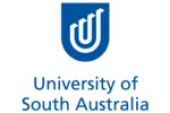
Bachelor of Laboratory Medicine (Honours) (IHBL)
University of South Australia (UniSA)
Type of institution: University/Higher Education Institution
Level: Undergraduate
CRICOS: 00121B
The Bachelor of Laboratory Medicine (Honours) prepares students for a career in all areas of pathology, with training in biochemistry, microbiology, immunology, molecular pathology, haematology and histopathology. Students gain practical experience in on-campus laboratories, and have the opportunity to practice these skills in real-world clinical settings when they complete industry experience across the third and fourth years of the degree. The honours component focuses on research training in which students complete research preparation and project courses in their fourth year.
Structure
- 144 units
- 8 units toward a research or technical paper undertaken in the fourth year of the program.
Subjects
- Laboratory Medicine
Standard entry requirements
Qualify for the South Australian Certificate of Education (SACE), and achieved a competitive Selection Rank (ATAR), orComplete secondary qualifications equivalent to SACE, orComplete the International Baccalaureate Diploma with a minimum score of 24 pointsApplicants who have not achieved the Selection Rank required for automatic selection may be selected for any remaining places based on the grades of their year 12 subjects.
Recognition
Graduates are eligible for membership of the Australasian Association of Clinical Biochemists (AACB). The program is fully accredited by the Australian Institute of Medical Scientists (AIMS), and graduates are entitled to Graduate Membership of the Australian Institute of Medical Scientists. Graduates are also eligible for membership of the Australian Society for Microbiology (ASM).
Study information
| Campus | Fees | Mid year intake | Attendance |
|---|---|---|---|
| City East | International: $158,400 | No |
|
Further information
Students undertaking activities where interaction with the public is required must obtain a current National Police Clearance and a Current National Criminal History Record Check (Child-Related Clearance) from the Department for Communities and Social Inclusion (DCSI). This certificate is valid for the duration of the program.




